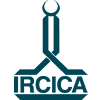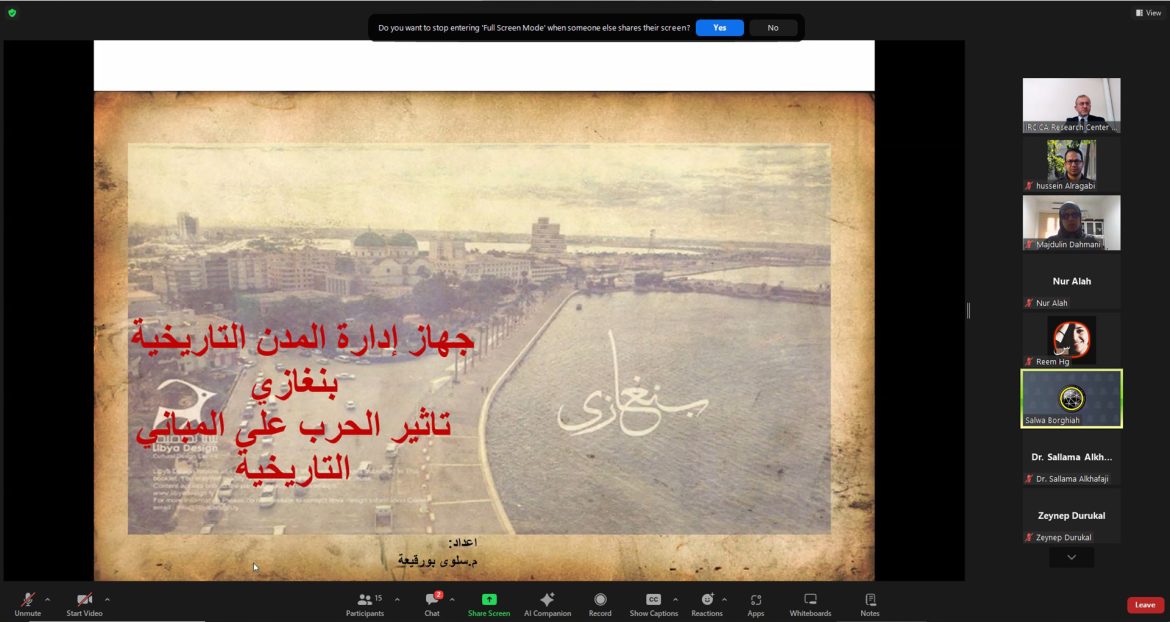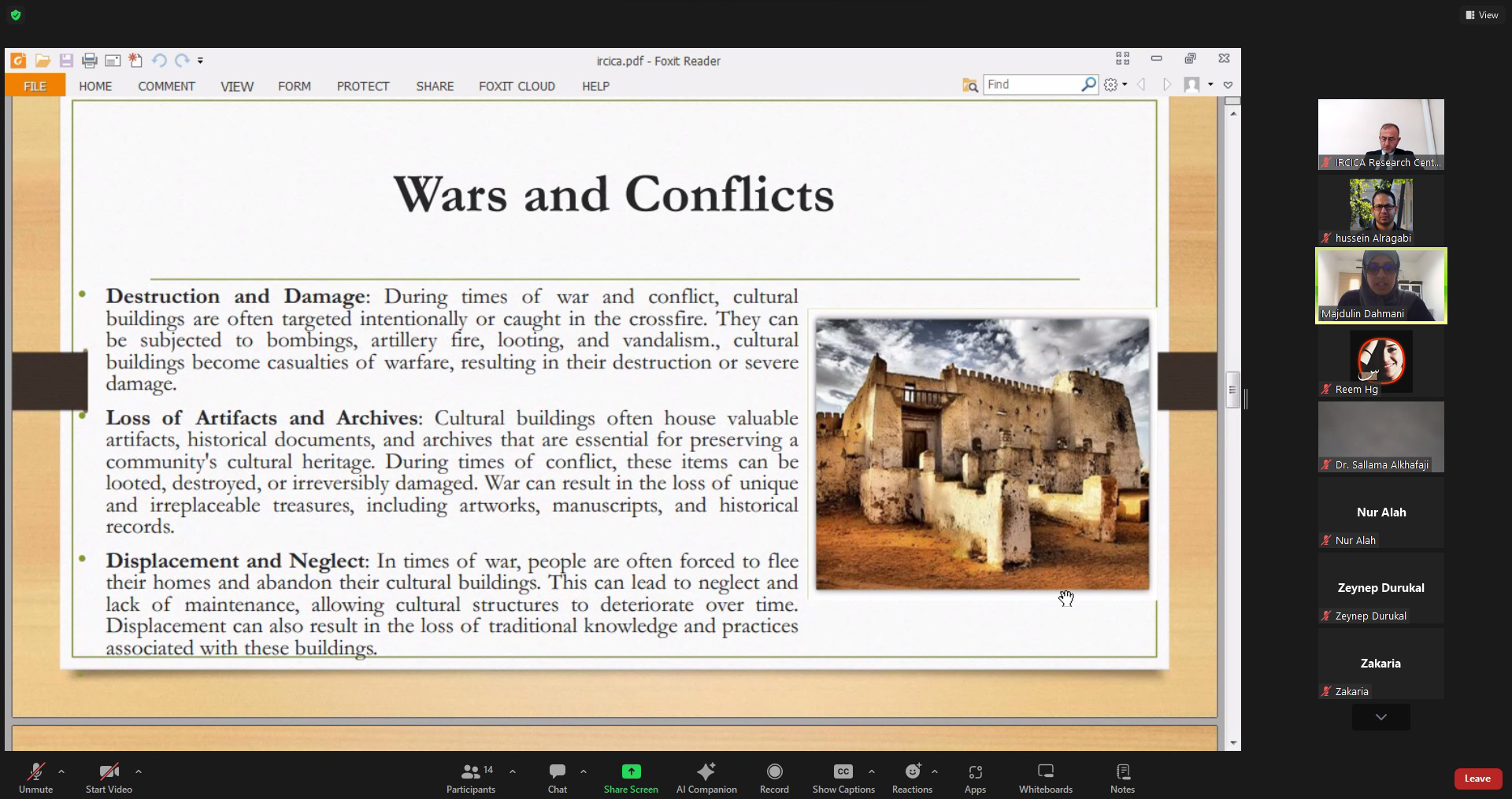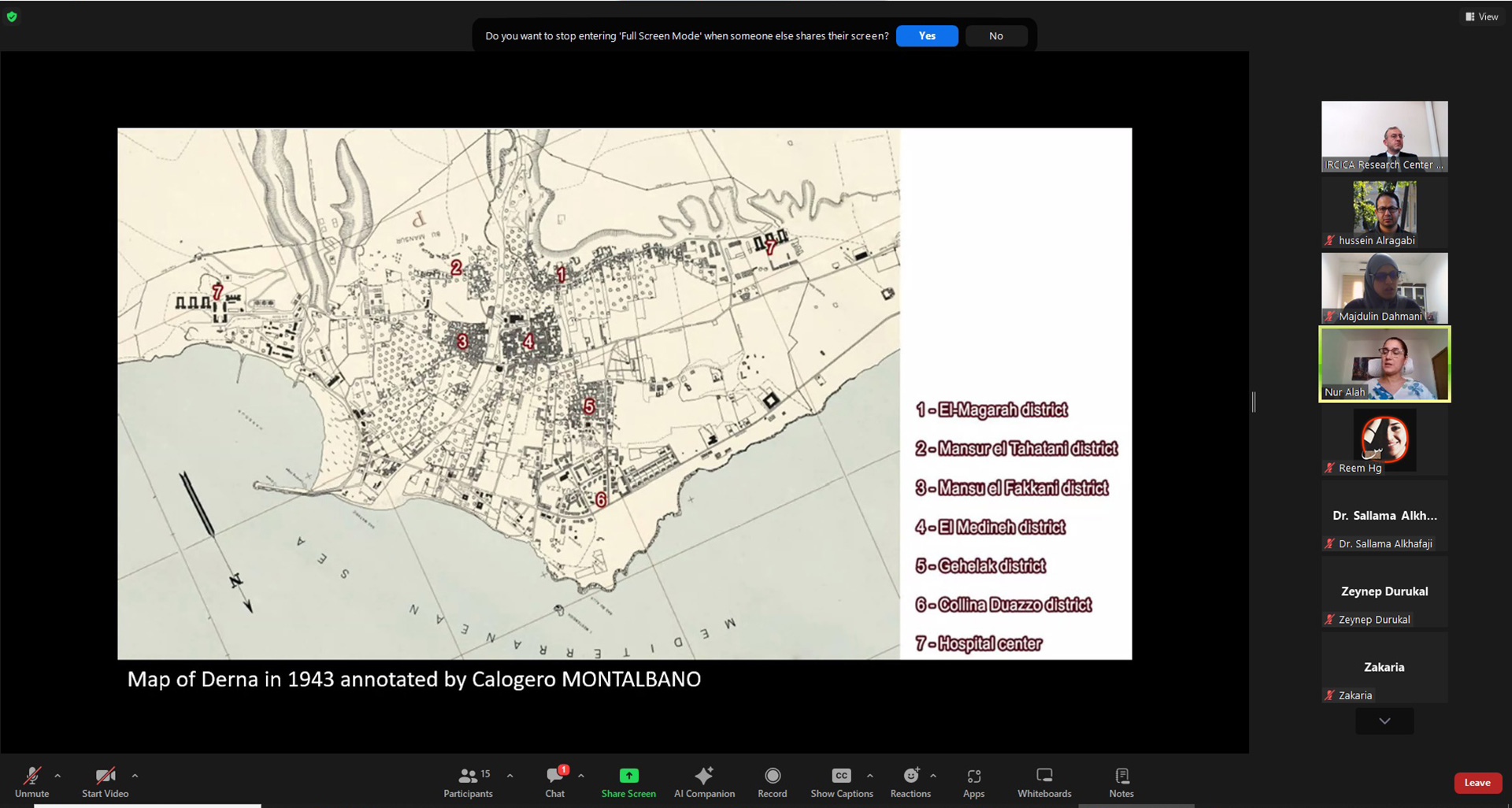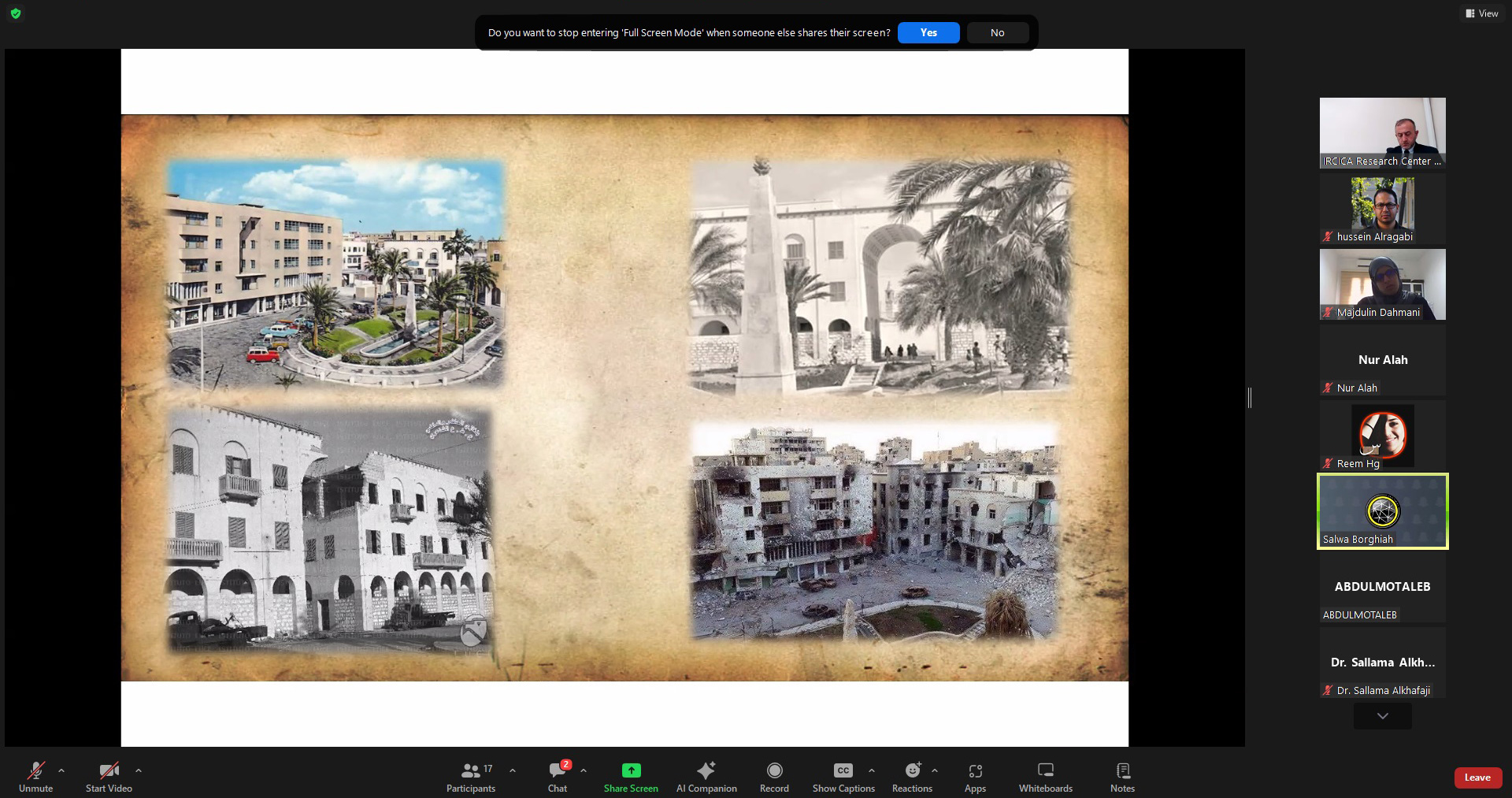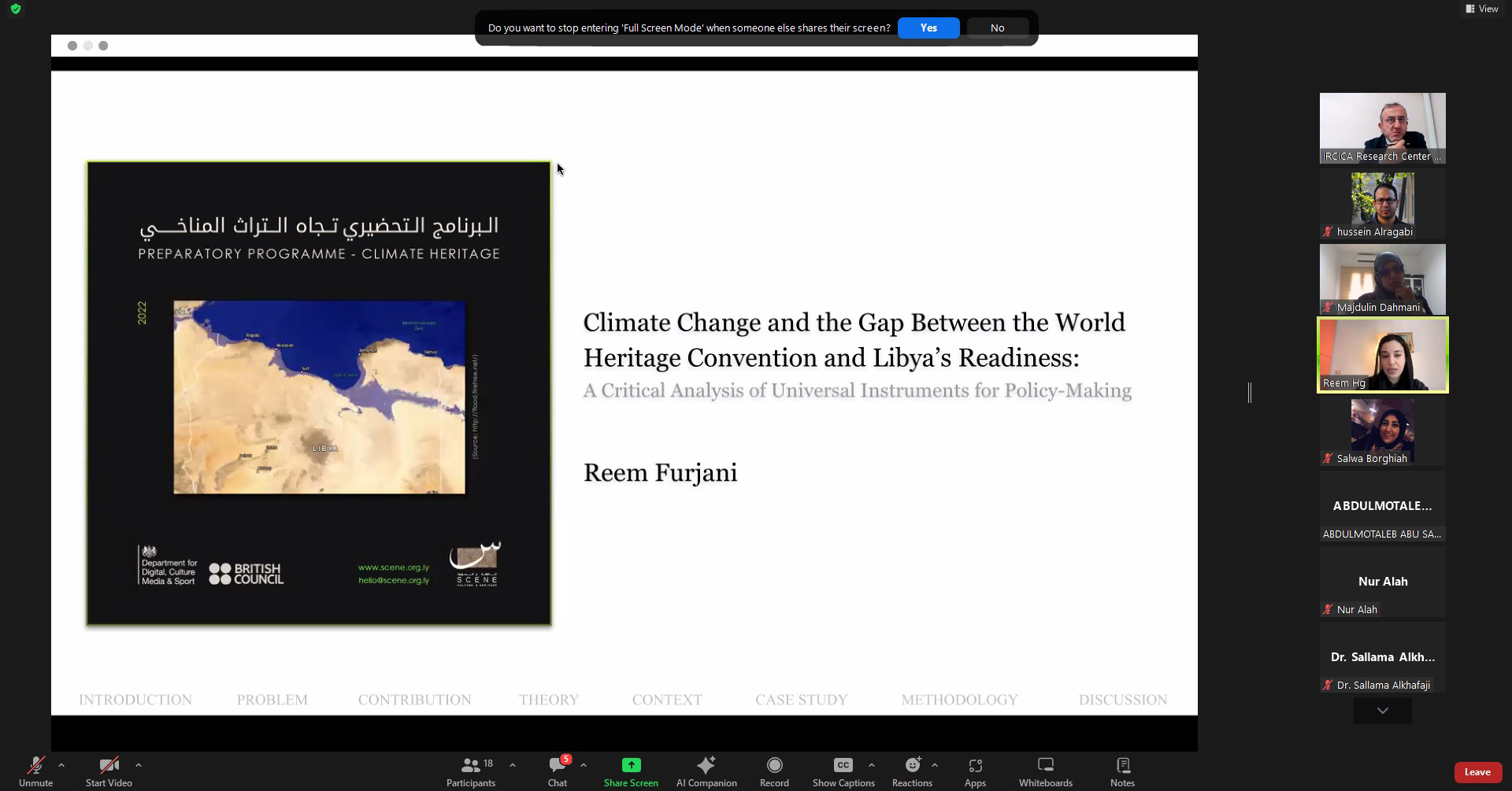“IRCICA Heritage Talks” program hosted four experts from Libya via online connections, with illustrated presentations on “Issues of Preserving Libyan Cultural Heritage Affected by Human and Environmental Factors”, on 9 May 2024. The panel was organized through the cooperation of Mr. Abdulmotaleb Abusalem, the representative of the State of Libya in the Governing Board of IRCICA who attended the panel, which was also attended by the representative of the State of Iraq in IRCICA Governing Board Dr. Sallama al-Khafajy and specialists of the subject from various countries. Opening the panel, Dr. Alidost Ertuğrul, Chief of the Architectural Heritage Section at IRCICA introduced the program of “IRCICA Heritage Talks” in general and the theme of the panel in particular.
The first speaker, Archeologist Ms. Majdulin Dahmani from the Historical Cities Administration Board, Tripoli, in her presentation titled “The Risks Facing Tangible Heritage in Libya” enumerated the dangers and disasters that have caused damage and destruction on Libyan heritage in cities, sites and monuments as armed conflicts; climatic factors and natural disasters such as the hurricane, floods, fires; negligence, inconvenient constructions and interventions. She analyzed the impact of these factors on people’s cultural identity consciousness symbolized by monuments and places. These factors are also interrelated: people being compelled to abandon their settlements results in neglect of the structures, loss of traditional knowledge and practice associated with the buildings, lack of awareness and further decays.
The second speaker, Arch. Dr. Nur Alah Ismael, speaking on behalf of the old city of Dernah, addressed “The Effects of Disasters on Built Heritage; the Compound Challenges of Dernah”. The speaker gave the history and described the geographical position of Dernah, a city historically located at the crossroads of cultures. She presented examples of major historical sites, districts and structures showing their states before and after the conflicts and the hurricane, which were the strongest destructive factors in Dernah; she presented cases of restoration and reconstruction. She also alluded to the need to plan reconstruction and restoration with a holistic view, taking into consideration the economic growth and other changing processes of the cities.
Then, Architect Salwa Burgeia from the Historical Cities Administration Board of Benghazi spoke of “The Impact of Armed Conflicts on Historical Sites and Monuments”. The speaker reviewed the history of Benghazi that saw successions of states and civilizations – Roman, Byzantine, Islamic, Ottoman, Italian, the Kingdom of Libya until our time and said that this history marked by repeated destructions under conflicts and reconstructions showed the resilience of the city structures. She presented cases of reconstruction – ongoing at Al-Manar Palace, the main street in the Old City, and other structures, observing that since Antiquity, the impact of armed conflicts has shaped the architectural evolution of cities. Relating to a question on how to maintain people’s attachment to old dwellings or districts they are compelled to leave because of wear out or unsuitability, Burgeia pointed to the economic aspect, explaining that if those structures are made to bring revenues as touristic must-sees, libraries, or in any other cultural way, it would help to valorize and preserve those places.
The last speaker, Architect Reem Furjani gave a presentation on “Climate Change and the Gap Between the World Heritage Convention and Libya’s Readiness: A Critical Analysis of Universal Instruments for Policy Making”. Furjani referred to the international conventions that set universal standards for the preservation of heritage, as opposed to context-specific frameworks. She underlined that for the conventions to be put to effect, the countries and localities should have the readiness to apply the standards, where readiness depends on a combination of factors, including legal frameworks, development priorities, resource management, expertise and training of executives, climate, motivation and mobilization of the actors and agents in each local context where preservation is to be carried out. The capacities of states who ratify the conventions to actually apply them will determine which and whose heritage will be protected. Furjani also outlined a survey she had conducted as a case study on Tripoli, to measure the weight of climate among motivations for preservation efforts, which showed, among others, that heritage is considered to be suffering from more damaging factors than climate, so the pressing need was remedial for damages, before their prevention.
A rich Q&A followed. The panel is recorded on YouTube.
